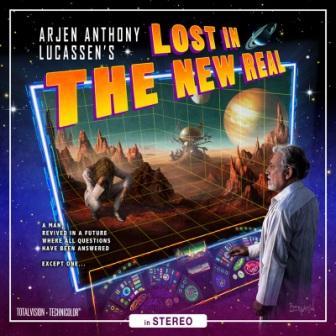
Last week, Dutch multi-instrumentalist Arjen Lucassen released his new album, Lost In The New Real, an epic concept album that spilled over into a second disc.
The main album tells the story of a 21st-century man who, when diagnosed with a terminal disease, opted for cryogenic freezing until a cure could be found. The album picks up as the main character — known only as Mr. L — is revived in a futuristic world in which he must come to terms with drastic changes in culture and technology.
"I grew up in a time before computers," said Lucassen, "and am amazed by how much the world has changed in the last 20 years thanks to the digital revolution. This got me wondering: What will the world look like in a few hundred years? What will technology, science, and society be like then? How will today’s pressing social/environmental problems be dealt with?"
The second disc contains a selection of extra tracks that wouldn't fit on the first, as well as covers of songs by Pink Floyd, Blue Oyster Cult, Alan Parsons Project, Frank Zappa and Led Zeppelin.
In case you haven't heard the album — which you can pick up here — we've got an exclusive stream of both discs for the next week, so check them out!
All the latest guitar news, interviews, lessons, reviews, deals and more, direct to your inbox!
Josh Hart is a former web producer and staff writer for Guitar World and Guitar Aficionado magazines (2010–2012). He has since pursued writing fiction under various pseudonyms while exploring the technical underpinnings of journalism, now serving as a senior software engineer for The Seattle Times.

